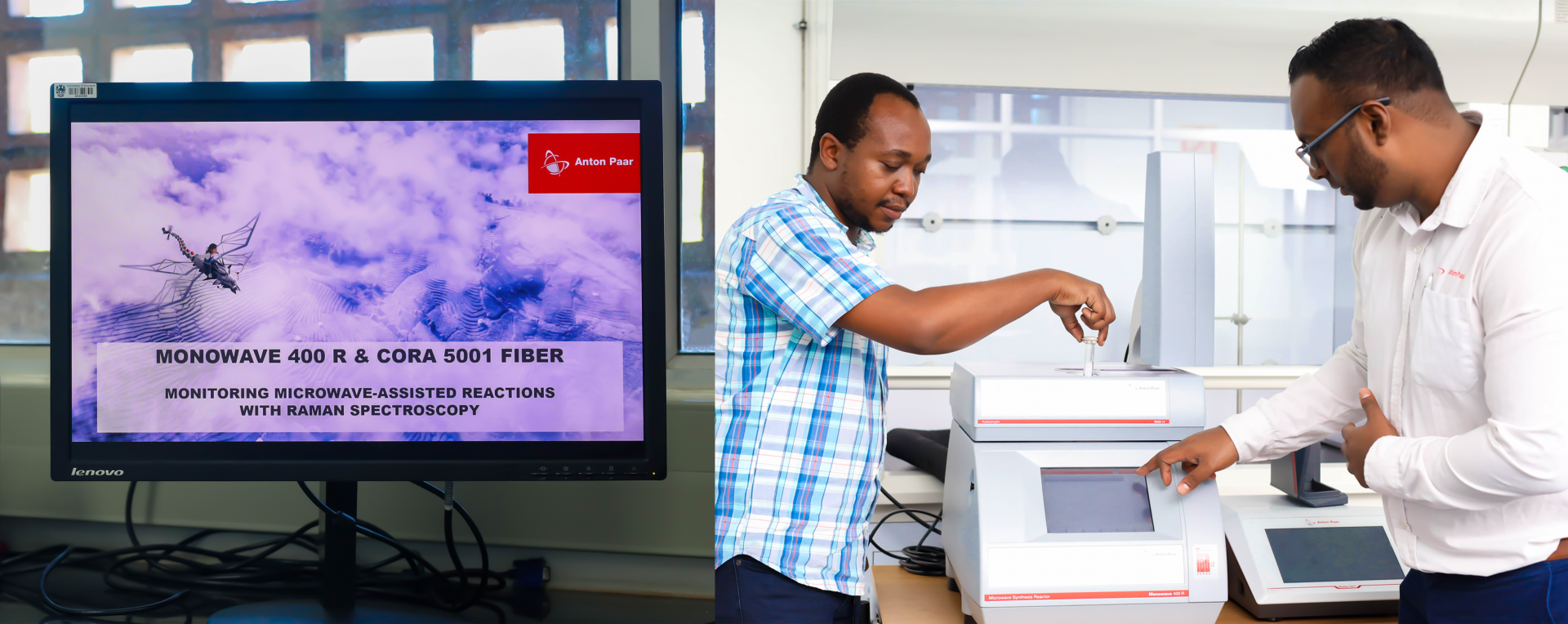State-of-the-art equipment for Chemistry Department

The Department of Chemistry within the University of Zululand (UNIZULU) recently acquired and installed new high-quality equipment that will significantly contribute to the research production and skills development in the department.
The Monowave 400R Microwave and Cora 5001 Raman Spectrophotometer were purchased from Anton Paar, South Africa. This remarkable system, valued at R1.9 million, was funded by the Royal Society-FCDO Africa Capacity Building Initiative (ACBI) programme.
This new piece of equipment will add to the capabilities of the university’s Nanotechnology Research Group, which is well known for work on the synthesis of nanomaterials for energy applications.
According to Prof Neerish Revaprasadu, who is a senior lecturer in the Chemistry Department, the Microwave-Raman system is the first of its kind in South Africa.
“Researchers will be able to prepare novel nanomaterials using an efficient and quick method, while studying their growth kinetics in situ using the Raman capabilities. The new system will make a significant contribution to the research output and skills development in nanotechnology research at UNIZULU. The novel nature of the equipment will also attract new collaborators and partners. UNIZULU is grateful to the Royal Society in London for the funding,” said Prof Revaprasadu.
Congratulating UNIZULU on this key purchase, sales specialist Theolyn Pillay said that the successful installation had put South Africa on the map by being the first institute in Africa to obtain the Raman spectrometry and microwave synthesis in situ combination.
“We are excited to see the new discoveries and publications that will come from the nanotechnology research group at UNIZULU, led by Professor Neerish Revaprasadu, using this unit. This system allows for the real-time monitoring while the synthesis reaction is conducted, and will open doors to the intermediates formed, previously unknown and termed as the black box,” added Pillay.
Professor Khoboso Lehloenya, acting Dean for the Faculty of Science, Agriculture and Engineering, said that the faculty was proud of training students through the novel nanotechnology research. She believes that obtaining the equipment will not only strengthen nanotechnology research, but also broaden its scope to accommodate more students in this kind of research.
“The instrument did not exist in South Africa (previously) – and its purchase makes UNIZULU the sole host of such equipment. This will allow UNIZULU to remain at the forefront of nanotechnology research and innovations originating from the utilisation of the instrument.
The acquisition of the instrument also enhances the attractiveness of UNIZULU to postgraduate students and post-doctoral fellows as well as other national and international collaborators. Therefore, having the instrument emphasises the standing and quality of nanotechnology research in the university, South Africa and globally,” said Prof Lehloenya.
– Precious Shamase














Leave a Reply